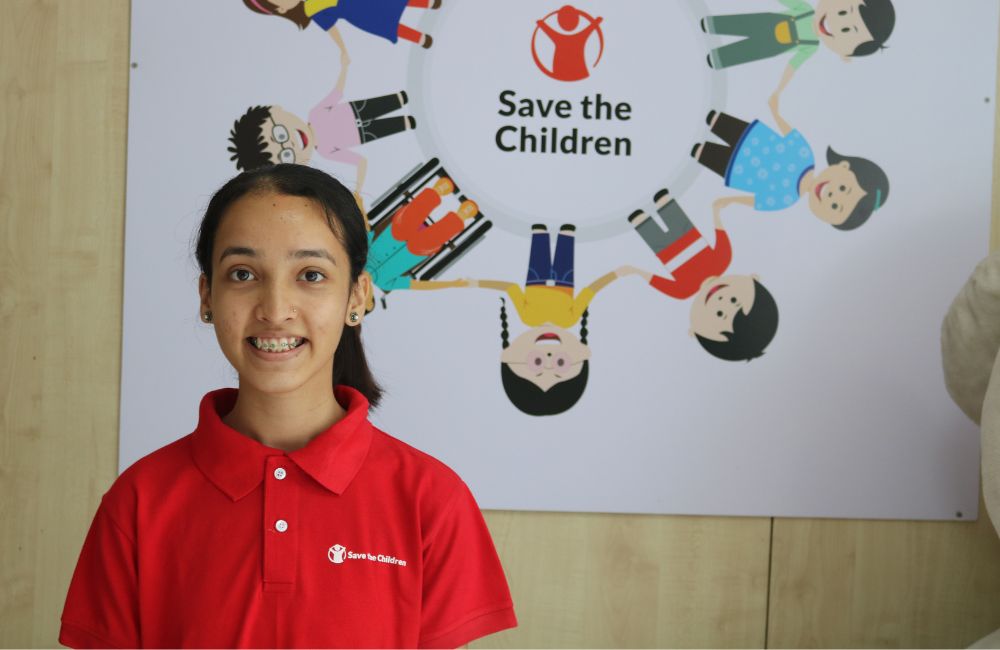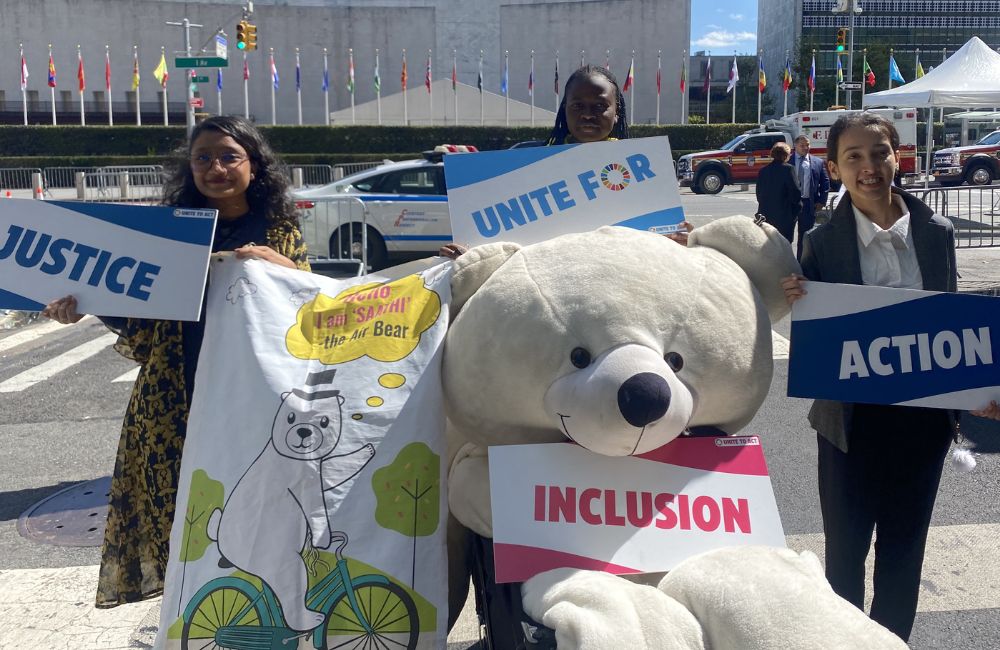Children are experiencing multiple, overlapping crises like we’ve never seen before. But they are also speaking up − against hunger, conflict, inequality, poverty, and the climate crisis. They want a fairer, greener, and safer world. Together with children, Save the Children called on decision-makers at this year’s United Nations General Assembly (UNGA) to turn promises into action by investing in, protecting, and engaging with children. One such young person is Anuska.
The power of representation
Anuska is a 17-year-old climate activist from Nepal and a Save the Children Red Alert and Generation Hope Campaigner. Her experiences witnessing disasters devastate her local communities set her on a path that would lead her to addressing global leaders.

“One of the very first inspirations was my mother, a social worker,” Anuska says, “she would take me to various
programs, but I loved plantation and participating in cleaning campaigns the most.
These experiences instilled in me a profound connection with nature, where I felt most secure and joyful.”
In the lead up to the 78th Session of the UNGA and Sustainable Development Goal (SDG) Summit 2023, Anuska spoke with the UN SDG Action Campaign about her journey and vision of a more sustainable future.
“My personal journey into climate activism began when I won a National Speech Competition focused on the “Roles of Youth and Children in climate action” she explains, “the allure of climate action captured my attention … I began participating in conferences and awareness video campaigns to deepen my understanding of our planet’s condition … To be able to represent a lot of children, mainly girls, is pure bliss for me.”

Istia, 18, from Bangladesh, Maureen, 16, from Zambia, and Anuska, 17, from Nepal, who Save the Children supported to attend the
Sustainable Development Goals (SDG) week in NY, USA.
The frontline of the climate crisis
Anuska draws on her personal experience to inform her advocacy and bring awareness to the interconnected impacts of the climate crisis.
“I have witnessed firsthand the devastating impacts of natural disasters in my community, including earthquakes, forest fires, landslides, floods, erosion, droughts, erratic rainfalls, and monsoons. These events threaten our economy and overall development. For instance, food shortages occur with insufficient rainfall, and rising temperatures lead to crop failures.”
However, rather than allowing the enormity of the challenge to overwhelm her, Anuska maintains an optimism and belief in collective action and emerging leaders.
“It’s evident that addressing these challenges requires collaboration and a shared commitment to change.